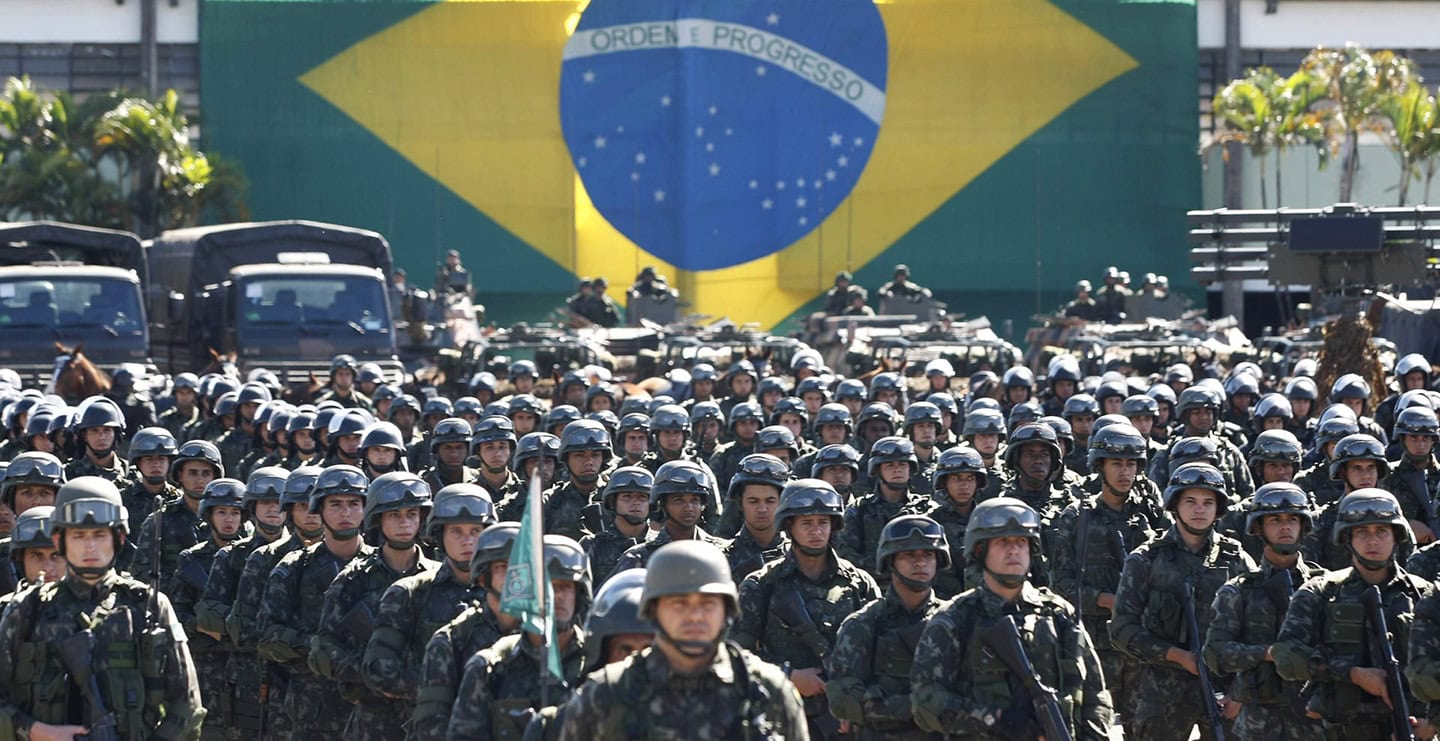 As Brazil marks six decades since the military coup that profoundly altered its political landscape, the nation finds itself in a period of reflection, grappling with the enduring legacy of authoritarian rule. On March 31, 1964, the Brazilian military, backed by conservative civilian forces and with covert support from the United States, overthrew President João Goulart, plunging the country into 21 years of military dictatorship.
As Brazil marks six decades since the military coup that profoundly altered its political landscape, the nation finds itself in a period of reflection, grappling with the enduring legacy of authoritarian rule. On March 31, 1964, the Brazilian military, backed by conservative civilian forces and with covert support from the United States, overthrew President João Goulart, plunging the country into 21 years of military dictatorship.
The coup, which unfolded amidst Cold War tensions, was justified by its perpetrators as a necessary measure to combat communism and restore order. However, its consequences were far-reaching and devastating for Brazilian society. The military regime, led initially by a junta and later by a series of generals, imposed strict censorship, cracked down on dissent, and systematically violated human rights. Thousands of individuals were arrested, tortured, and killed, with many more forced into exile.
For decades, discussion of the coup and its aftermath was fraught with political tension. The regime left scars that are still felt today, influencing Brazil’s political culture and societal divisions. While some segments of society viewed the coup as a necessary evil to prevent communism, others saw it as a betrayal of democracy and a stain on Brazil’s history.
 In recent years, efforts to reckon with this dark chapter have gained momentum. In 2014, then-President Dilma Rousseff, herself a former political prisoner and torture survivor during the dictatorship, signed a law officially recognizing April 31st as a day of remembrance for the victims of the military regime. The move was part of broader initiatives aimed at truth-telling, reconciliation, and ensuring such abuses are never repeated.
In recent years, efforts to reckon with this dark chapter have gained momentum. In 2014, then-President Dilma Rousseff, herself a former political prisoner and torture survivor during the dictatorship, signed a law officially recognizing April 31st as a day of remembrance for the victims of the military regime. The move was part of broader initiatives aimed at truth-telling, reconciliation, and ensuring such abuses are never repeated.
President Jair Bolsonaro, a former army captain with a controversial stance on Brazil’s military past, has at times sparked controversy with his comments on the dictatorship era. While some of his supporters advocate for a reevaluation of the coup’s historical significance, others argue for a more nuanced understanding that respects the suffering endured by victims and their families.
Sixty years on, the memory of the military coup remains deeply embedded in Brazil’s national consciousness. Memorials, documentaries, and academic studies continue to shed light on the human rights abuses and political upheaval of that era. As the country navigates its future, grappling with issues of democracy, justice, and memory, the lessons of the past continue to resonate, serving as a stark reminder of the fragility of democratic institutions and the enduring importance of safeguarding them.
The U.S. Participation
According to Responsible Statecraft, Brazil’s 2014 Truth Commission report is the country’s only formal investigation into this period of dictatorial rule. The commission’s 2,000-page report revealed some grisly details of the dictatorship’s human rights abuses, identified over 400 individuals killed by the military, and  shed light on Brazil’s role in destabilizing other Latin American countries.
shed light on Brazil’s role in destabilizing other Latin American countries.
To assist with the Truth Commission, then-Vice President Joe Biden hand-delivered declassified State Department records to former Brazilian President Dilma Rousseff. The records offered details about the dictatorship and Washington’s enabling of abuses, including a cable from former Ambassador to Brazil William Rountree arguing that condemning the regime’s human rights “excesses” would be “counterproductive.”
Responsible Statecraft highlights that Biden’s delivery of the declassified records was symbolic, since the U.S. had supported the coup. The U.S. solidified its support for the putschists the year prior, drew up plans for a U.S. invasion if deemed necessary, and sent a naval task force to Brazil to support the military plotters. In the end, direct U.S. involvement wasn’t needed — Goulart fled to Uruguay by April 4. The coup was carried out by Brazil’s generals, but Washington celebrated it as a victory for its interests nonetheless, since it saw Brazil as a key ideological partner in destabilizing leftist regimes across Latin America.
Source: Brasil de Fato and Responsible Statecraft


